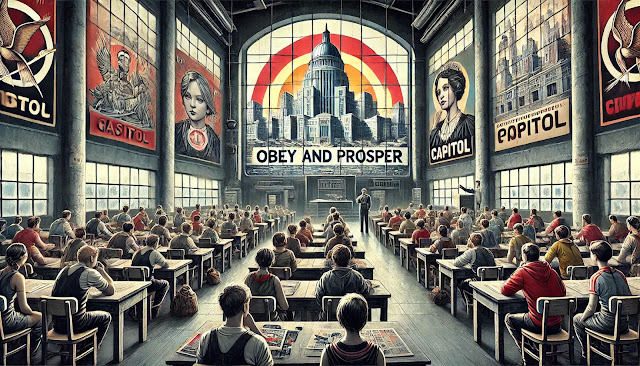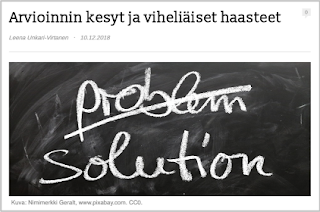The Role of Education in Reinforcing Dominant Norms in The Hunger Games

DALL-E made this picture, it imagined what the school in Hunger Games might look like. Fictional literature rarely delves into the societal role of education systems and curricula. While reading Suzanne Collins's The Hunger Games series, I was drawn to how education is depicted as a tool for power and control. These popular novels, which have also been adapted into films, offer suspenseful storytelling and a thought-provoking perspective on societal structures and the exercise of power. In the world of The Hunger Games , the state—reminiscent of a dystopian United States—is divided into twelve districts ruled by the Capitol. Life in the districts is marked by scarcity and hardship, while the Capitol thrives in excess and luxury. The Capitol tightly controls the districts, and education is one of its primary tools of oppression. The Capitol dictates the curriculum, ensuring students are taught only what serves the regime's interests. Crucial knowledge,...




